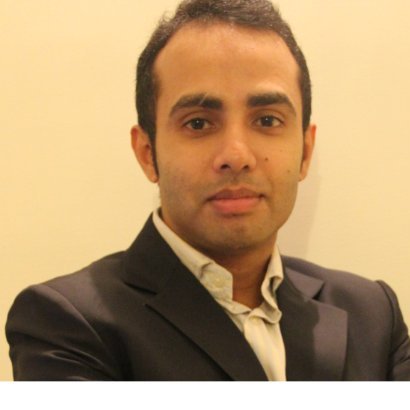Kallol Das is currently the Legal Head of Global M&A at Cipla Ltd. Before this he was the Legal Head at Brand Capital, a division of BCCL, which is the flagship company of the Times of India Group.
Prior to this, he had a brief stint as Legal Consultant at Reliance Communications and has been an Associate at Malvi Ranchoddas & Co., a law firm based out of Mumbai.
Kallol Das is an alumnus of NLSIU, Bangalore belonging to the 2000 batch.
He has been kind enough to share with us his experience through all these years and guide law students on how to step foot in the corporate world.
1) How would you introduce yourself to our readers?
I am a corporate transaction lawyer, and have been around for 16 years. For me, work has to be fun, I need to enjoy what I am doing. Else it’s just…work, and I can’t stand it for long.
2) Could you give us an account of your experience as a law student at NLSIU, Bangalore?
NLS in the late 90s was very different from what I understand it is today. I had five years of fun with a great bunch of people. I forged many lasting friendships while there, with people who’ll remain friends whether I succeed or fail. I also participated in the many of the co-curricular activities, which added to the fun.
3) You worked as an Associate at Malvi Ranchoddas & Co. before moving to Reliance Communications. What prompted you to change into an in house counsel?
It wasn’t something I had planned, more chance than choice.
4) Was it a conscious decision to work at a company rather than a law firm? What would your advice to students who want to pursue their in house aspirations be? How should they go about it?
It was a conscious decision to join a law firm at the start of my career. I chose Malvi over other in-house options that I had. Malvi being a small firm, I had a better quality of life than I’d have had in a bigger one. At the same time, the learning curve was steep and learnings from my Malvi days, continue to serve me.
Starting with a law firm helped me get my basics in place, as also my drafting. And thereafter I have been lucky to have got opportunities where I’ve handled transactions myself and instead of just liaising with an external counsel.
For those whose focus is in-house, please understand that there is no one-size-fits-all approach. In-house roles aren’t all the same. Some operate only as outsourcing/liaising centers. Nothing wrong with that, but if that’s your desire, do join a corporate from day one. If you’d rather get your hands dirty on an M&A deal, at least a couple of year working in a law firm that handles M&A will go a long way. A basic understanding of finance and accounting will also help.
5) Could you explain to our readers the role of an in house counsel in the company? How is it different from working at a law firm?
A key difference between an in-house counsel and any external advisor is that the former is almost as much responsible for meeting business goals as the business team in a company. There is a far greater need to understand the business your organization is in.
6) What according to you is a good CV, that of a topper or one with extracurricular achievements such as moot court or paper publications?
There’s no good answer to that. Depends on the role. By and large it’s more important that the person is a right fit for the team, culturally and personality-wise; there is no blueprint for ensuring that.
7) What would you expect from a candidate during an interview process? Any answer that you have been particularly impressed with?
First and foremost, sincerity.
Second, please don’t write anything on the CV that you can’t defend. Don’t pass off as your own, transactions, where you hardly played a role. Most interviewers will be able to tell.
Beyond that, it’s not an exact science. You need to strike the right chord with the interviewer, but don’t try too hard.
While interviewers make snap judgments, interviewees, especially those who have worked for a while, also need to make certain calls. If you are meeting your future boss, are you sure you will be able to work with that person? It would be good to figure that out.
8) Any other advice to law students gearing up for the recruitment process?
Only one – in choosing your job give more weightage to what you want to do, than to the pay, especially early in your career. In the long run, money will find its way to you.







